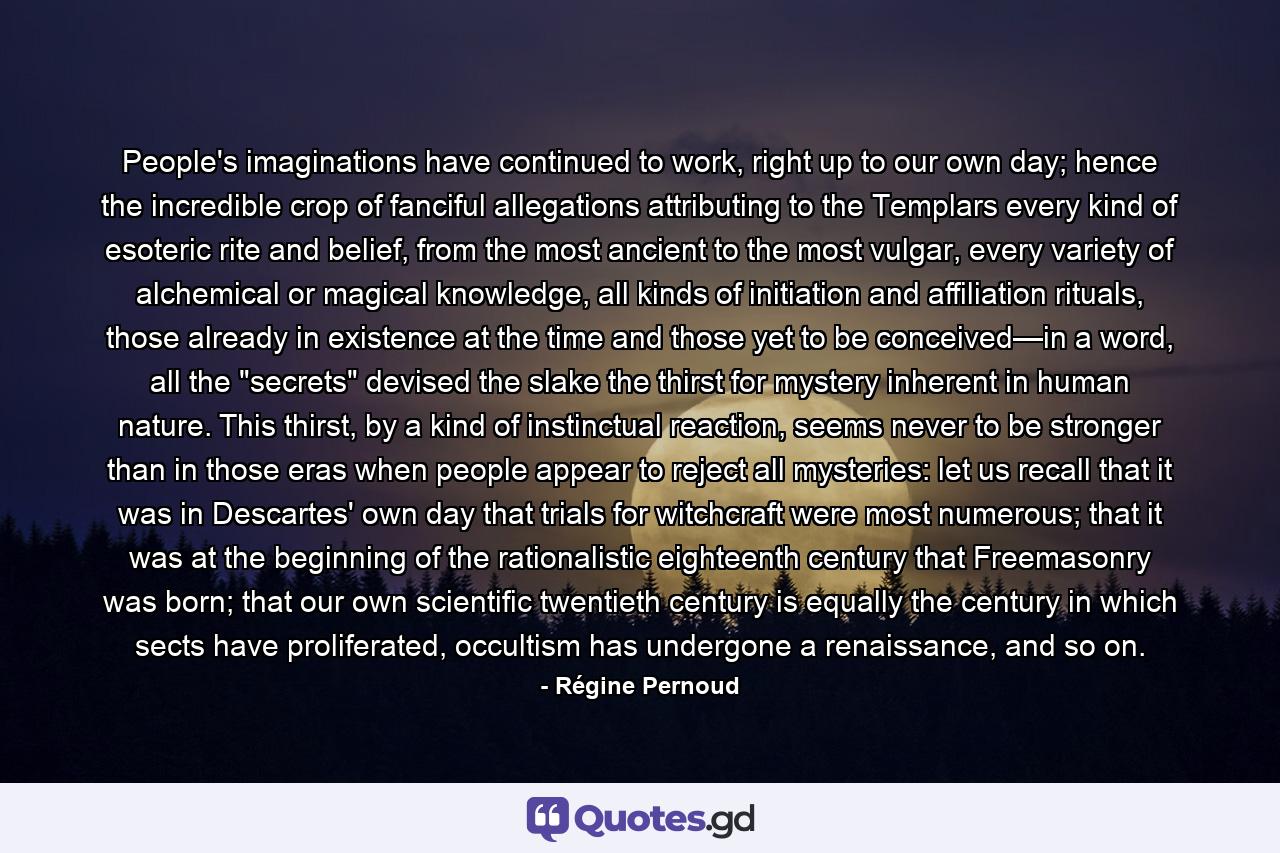People’s imaginations have continued to work, right up to our own day; hence the incredible crop of fanciful allegations attributing to the Templars every kind of esoteric rite and belief, from the most ancient to the most vulgar, every variety of alchemical or magical knowledge, all kinds of initiation and affiliation rituals, those already in existence at the time and those yet to be conceived—in a word, all the “secrets” devised the slake the thirst for mystery inherent in human nature. This thirst, by a kind of instinctual reaction, seems never to be stronger than in those eras when people appear to reject all mysteries: let us recall that it was in Descartes’ own day that trials for witchcraft were most numerous; that it was at the beginning of the rationalistic eighteenth century that Freemasonry was born; that our own scientific twentieth century is equally the century in which sects have proliferated, occultism has undergone a renaissance, and so on.
